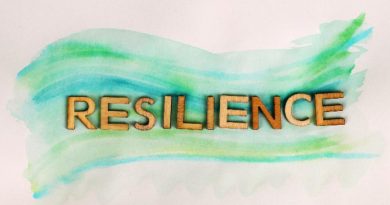Here are 2 reliable sources on ed-tech products that will work for your district
Two initiatives seek to help district leaders make more impactful ed-tech purchases, based on the experiences of their peers.
What if there was a way to (very easily) find which ed-tech programs and platforms were making a difference in districts with the same characteristics as yours? We’re not talking about something as simple and wide-open as Yelp or Amazon ratings. You and your team need a little more substance, right?
Bart Epstein and his team at the EdTech Evidence Exchange are working to build a system where teachers and administrators can share lessons learned from ed-tech implementations and evidence of success (or lack thereof). “Everybody feels like they’re constantly reinventing the wheel,” says Epstein, who is also a research associate professor at the University of Virginia. “If you’re an overworked and exhausted teacher or administrator and you’ve spent eight months learning to use a new algebra program, what incentive do you have to document the experience, and acknowledge your mistakes, and share it with thousands of peers who you don’t know?”
The EdTech Evidence Exchange, which is funded completely by philanthropy, is paying stipends to educators to spend about 45 minutes providing thoughtful and detailed input about the ed-tech they’re using. They are asked standardized questions about the amount of training that a new ed-tech product required, how it’s helping students meet learning goals, and how it integrates with other systems. The responses are put into context with information about the school’s educational priorities, financial status, demographics and other factors.
The end result will be an “Ed-Tech Genome Project” that reports the 10 most important factors that explain why a product or program can be a big success in one district and a complete failure in another. More than 1,000 educators have participated so far.
“If we can eventually get to a critical mass, our expectation is that the information will be extremely valuable not only to school districts but also to ed-tech companies, who can use it to better understand their customers’ needs and frustrations,” Epstein says.
Epstein is eager to work with more than just the most tech-savvy, well-resourced districts. “We want to hear from educators who feel like things aren’t going very well and who want to do better,” he says. “If we can figure out which ed-tech products work in dysfunctional environments by learning from each other, that’s why we’re doing this—to reach kids whose school districts don’t have the ability to spend their way out of every problem.”
Finding good ed-tech partners
Leanlab Education is another nonprofit that is working to build educators’ confidence when purchasing ed-tech—by highlighting companies that have improved their products based on feedback from teachers and administrators. Leanlab’s new Codesign Product Certification verifies that companies have incorporated recommendations from school communities that have tried their products.
“We want to give teachers and school administrators a quick way to understand if an ed-tech product reflects the insights of educators, students and parents—the true end-users in education—and if it was built for the realities of classroom environments,” said Katie Boody Adorno, Leanlab’s founder and CEO.
Leanlab acts as a design coordinator between schools and ed-tech companies. Leanlab’s researchers may spend a few hours to a whole semester testing products with educators and students, and channeling recommendations to the provider. If a company acts on at least 75% of the school’s suggestions within six months, they earn Leanlab’s codesign certification.
“Because of the influence of ed-tech with distance learning, educators said to us, ‘I need an easy way to know who’s a good partner and what works. We don’t have time to sift through all the resources coming our way,’” Adorno says.
Source: https://districtadministration.com/2-reliable-sources-ed-tech-product-work-your-schools/




